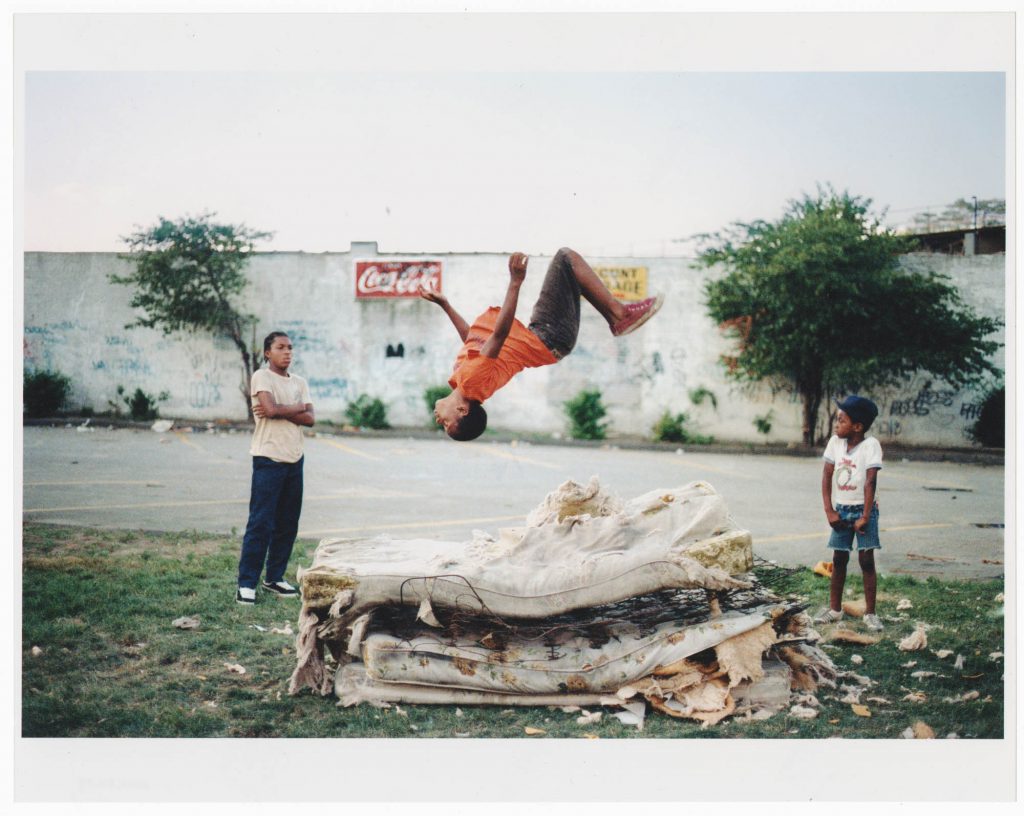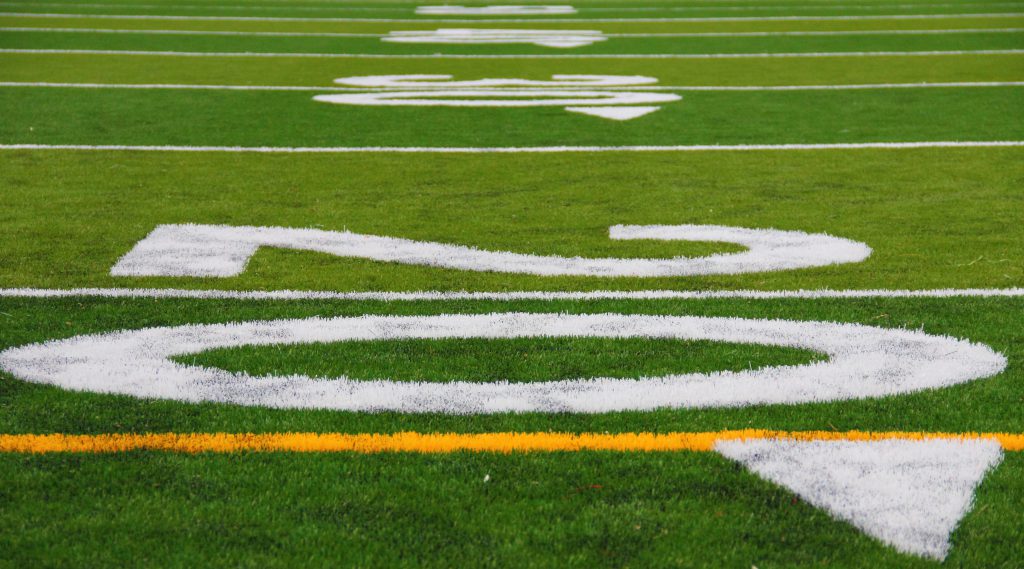Writer—and long-suffering Toronto Blue Jays fan—Stacey May Fowles looks at how success at the highest levels of baseball can still look like failure.
On November 1, 2017, the Los Angeles Dodgers lost the World Series.
Though of course true, to say that “the Dodgers lost the World Series” feels like a strange, glass half empty way to characterize what happened in this year’s baseball postseason. It was, as it always is with baseball, so much more complicated and beautiful than that.
If you were watching what transpired throughout the month of October, you got the sense that all was just and right in the dramatic land of this game—the already anointed “best team in baseball” (the aforementioned Dodgers) faced the compelling underdog (the Houston Astros) in a seven game filmic thriller. Anyone without initial allegiances found it hard to find firm loyalties: both teams definitely felt deserving.
It was the kind of disappointment only possible when a team comes very close, but not close enough.
A more uplifting take on the 113th edition of the World Series would be that the once-excruciatingly terrible Houston Astros won their first championship in franchise history. There was something poetic about them bringing the Commissioner’s Trophy home to Houston, a city ravaged by Hurricane Harvey only a few months earlier. The magic continued when star shortstop Carlos Correa proposed to his girlfriend before he even left the field, and when pitcher Justin Verlander, traded to the Astros minutes before the deadline only a few months before, spent the following weekend in Italy marrying supermodel Kate Upton. When the champagne was drained and the red dust settled, some players went to Disney World, and others went on Saturday Night Live. It was, by all assessments, a fairytale ending.
But after that electrifying seven game series, and a season so often defined by the LA Dodgers’ great expectations, there was a certain degree of notable let down. It was the kind of disappointment only possible when a team is very good, and comes very close, but not close enough.
Nowhere was that feeling more heartbreaking and more acute than in the postgame words of Dodgers’ ace starting pitcher, Clayton Kershaw. “Maybe one of these days I won’t fail, we won’t fail, and we’ll win one of these things,” he told reporters. “There’s only one team that can succeed. There’s only one team that wins the last game, so that’s tough.”
Who among us, in the face of loss, has not felt like the relentless failure regardless of any evidence that disputes it?
The very idea that Kershaw, an elite athlete and arguably one of the best pitchers of his generation, could not only feel like a failure, but basically always feel like a failure is what made that sound bite particularly crushing. It also made his sentiment so human, and so easily identifiable—who among us, in the face of loss, has not felt like the relentless failure, regardless of any evidence behind us that disputes it?
Pitchers are particularly vulnerable to this brand of punishment and self-flagellation, perhaps more than other players on the field. Just ask Kershaw’s fellow Dodger Yu Darvish, who surrendered four runs in both game three and game seven of the World Series, came close to postgame tears, and logged on to Twitter to announce that “the World Series resulted in a disappointment due to my lack of performance.”
If a pivotal game implodes quickly, or even glides gently into the loss column via a single errant walk, wild pitch, or hit, the blame often feels like it lands squarely on the shoulders of whatever man is on the mound. He’s stuck in the spot-lit center of the game, trying not to wear his frustration, until his manager offers him an exit he may or may not want. It’s really no surprise these athletes are prone to various anxiety ailments, crises of confidence, and in some cases—like that of St. Louis Cardinal Rick Ankiel, who famously lost pitching control in the 2000 National League Championship Series and eventually chose the outfield instead—a need to walk away from the game completely.
If Kershaw felt like he has failed, what hope was there for the rest of us?
In Kershaw’s case, the overwhelming evidence of a lack of failure is pretty clear; there were an incredible 104 Dodger wins during the 2017 season, and a Sports Illustrated cover that all-caps asked, “Best. Team. Ever?” Kershaw himself has got three Cy Young Awards, seven All Star distinctions, a Gold Glove, a Triple Crown, and countless other accolades and achievements frankly too time-consuming and tedious to list. So when his sound bite became a headline that circulated among the sports-fan masses, the fundamental question was this; if Kershaw felt like he has failed, what hope was there for the rest of us?
Though many have an understandably escapist attitude towards watching sports, I would argue that what baseball, and sports in general, teaches us about the more difficult aspects of life—loss, disappointment, and yes, failure—is what makes fandom so valuable. Sports forces us to face these difficult realities head on, in an overlarge, stripped down, almost caricature-esque way. It’s always clear who the winners and losers are, the parameters of play becoming a place to safely submerge ourselves in both extreme emotional experiences.
As fans, we voluntarily subject ourselves to the very real risk of not coming out on top, of crying into our ballpark beers, because we understand that the emotional journey is well worth the potential for a less than stellar outcome. Not only do we do this voluntarily, we pay for it—with our time, and our dollars, and our feelings. (During the postseason, I’ve further paid for it with a lack of sleep, poor eating habits, and neglected household chores.) It’s almost as if we understand that it is good for our souls to suffer the losses of strangers, to invest ourselves in something so objectively frivolous, and take it more seriously than we ever dreamed possible.
If you zoom out from the intense, dramatic minutiae of the baseball season’s most important game, Kershaw’s assertion that he is a failure, that he has not succeeded beyond most of our wildest dreams, is completely ridiculous. In fact, the pitcher was up for his forth Cy Young award this postseason, where winning more than three puts you in a coveted circle of historical magnitude. From whatever perspective you choose to come at this by, even that of a dismayed Dodger fan, it’s hard to see him, or the Dodgers, as having “failed.”
Sports fans are doing the work of empathy.
The fact is, if we only ever showed up on game day to win, if that was our only valid measurement of triumph, the enjoyment of play would be a pretty pointless pursuit—especially when, in the MLB for example, you have a one in thirty shot at glory during a pretty good year. And maybe when we as fans acknowledge the sadness and absurdity of a player’s personal disappointment, understand that there is more to a season than that final game, we are actually offering ourselves the same kindness.
The act of loving sports trains us to not only care about the joy of perfect strangers, but also to want to alleviate their pain. In the stands we are developing a kindness and understanding that trophies, parades, and ultimate victories are not the true measure of worth. We are doing the work of empathy, learning to forgive the “failures” of both ourselves and others, learning to become more human—all of which are valuable lessons indeed. ♦
(Photo credit: Image courtesy of Malingering via Flickr.)












